Toronto-based Video Production Company Kontakt Films Boasts a Diverse Portfolio of Work for Clients Across North America
Adam Bialo is a director and executive producer at Kontakt Films, a full-service video production company in Toronto. Since 2003, Kontakt has built up a portfolio that includes various commercial, corporate, documentary, photography, and music-based projects for brands, agencies, artists, and record labels across North America. In this interview, Adam Bialo about why he set up the company, how they have adapted over the years to technology changes and the industry’s current state.
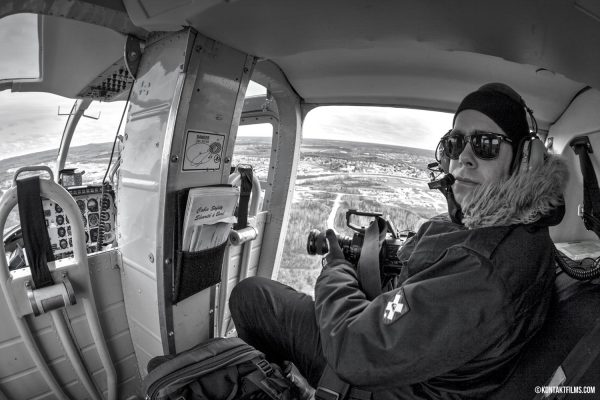
What kind of work were you doing in the film industry before focusing on Kontakt? What did you learn from those experiences?
I started Kontakt in my second year at Sheridan for my first major student short in 2001. I used it going forward as a platform to release my other short film productions and snowboard videos. In January 2003, I registered the company officially when I moved to Toronto. At that time, money was tight, and I worked on-set doing anything I could, including Production Assisting, Script Supervising, Lighting, and even working in the Art Department.
Spending time within different departments gave me a good understanding of how professional film sets operate, and I was able to see the different challenges crew members had from their unique perspectives. This helped me become a better Director, Producer, and Cinematographer from both the human side working with different personalities and the technical side by learning new equipment, processes, and techniques. To this day, I still feel like a jack-of-all-trades and joke that the only job I haven’t done on set is make-up.
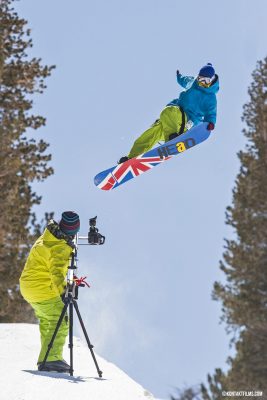
What services do Kontakt Films provide?
Since the start of my film journey, I always did my shooting and editing. This was a pillar for Kontakt as most of the companies in the early 2000s did either solely production and post. I wanted to keep creative control of the product from the pre-production stage until the final edit was delivered to clients, which helped develop our portfolio and style. In the beginning, Kontakt did mostly corporate productions for local clients, along with some local TV commercials and music-based projects.
Eventually, people heard and saw what I was doing, and their referrals helped my business grow and find new clients. About ten years ago, we started doing more photography for clients as the lines between photo and video began to merge, and I found it beneficial to shoot both on set for specific productions. We also now do more creative development for clients that don’t work with agencies and need help coming up with concepts and scriptwriting.

Tell me about some of the projects and clients that you have worked with since 2003.
Our scope of work has been pretty diverse, and our portfolio now includes different commercial, corporate, documentary, photography, and music-based projects for brands, agencies, artists, and record labels across North America. I have collaborated with other production and post houses over the years and many agencies in Toronto.
We’ve worked with smaller local brands such as Napoleon and King Cole Ducks to more prominent national brands like Kia and Hellmann’s and artists such as Death From Above 1979, Selena Gomez, and Motörhead. Music and film go hand in hand, and it has always been a huge passion of mine. So filming concerts and festivals across North and South America allowed me to shoot and meet some of my favorite artists and bands and also discover new ones while traveling the world with collaborators and friends.

What are your responsibilities and duties at Kontakt?
I direct and produce most of our projects and also shoot a lot of our productions. I’ve become a pretty skilled editor and motion graphics artist after doing it for twenty years and handle most of our post-production jobs unless scheduling conflicts and I need help. Sometimes being a jack-of-all-trades is beneficial as your knowledge pool is vast, and you can do different roles and adapt to the project as necessary, but it can also be a detriment.
I always wanted to focus solely on directing but still find myself doing other tasks for projects, maybe because I want to retain creative control. I don’t think there’s a typical day in our line of work as the projects, people, and schedules changed regularly, at least it did before the pandemic. When I am not on location or in-studio shooting I am either quoting new projects, doing pre-production for upcoming jobs or finishing post-production from projects we just shot.
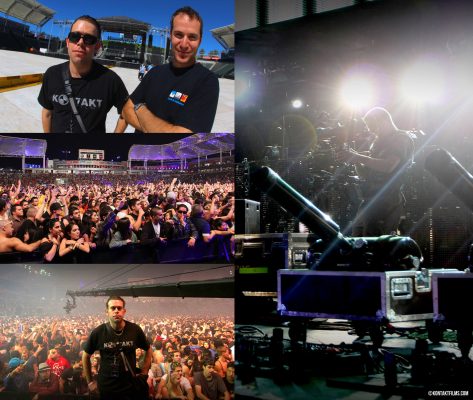
Tell me about how your business has grown in regards to the technology and gear that you use.
Technology is always changing for us. We were shooting on 16mm and DV NTSC in film school, then moved to HD, 4K, and now started working in 6/8K resolutions. The cameras are constantly getting upgraded and new equipment such as gimbals and drones are being released so you need to stay on top of the tech and continue to learn and add these tools to your arsenal. New software is always coming out on the post-production side, and old software is continuously being upgraded, so we’re always learning, developing, and perfecting our workflow.
Over the years, smartphone cameras have gotten so much better, and it’s easier than ever to shoot high-quality photos and videos without any formal training. But storytelling hasn’t changed that much, and that is where our skillset lies – determining the best shots and scenes to film and which seconds of dialogue to use from hours of interviews are something that takes years to understand, execute and improve on. Over the years, I’ve also gotten into travel photography, and this passion has helped my filmmaking and cinematography by improving different techniques, including framing, lens selection, lighting, and image post-production.
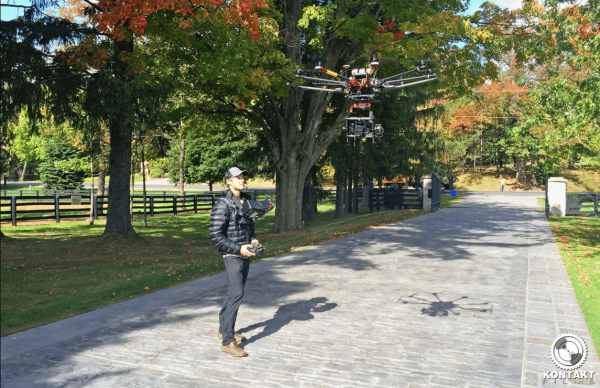
How did your business adapt in 2020 in response to the COVID-19?
To be honest, we’re still adapting. Last March, things were looking great, we had clients and jobs lined up for the spring, and it all disappeared after the first lockdown. The other problem for Kontakt is that we made a lot of event and music-based work, neither of those things came back in 2020 and probably won’t this year.
As a result, Kontakt’s sales were down over 50% in 2020 compared to our previous five-year average, with most of our work in the latter half of the year being post-production-only projects. We had a few socially distanced shoots in the fall, but with the new round of lockdowns in late 2020 going into 2021, our client productions have stopped again, so the future is very uncertain for production companies like mine. We’re always ready for a few bad months, but the last year has been a different beast altogether, and it’s far from over.
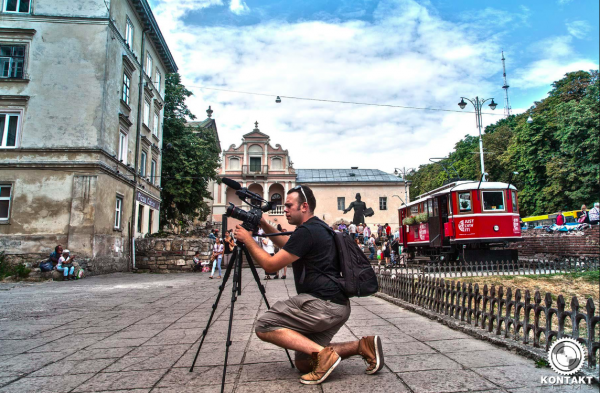
How are things looking for the film industry in 2021?
The big film and TV productions are back up and running in Toronto with COVID safety and limitations on set, but I feel the smaller shows for companies like Kontakt have fallen off as clients are wary of shooting right now, and agencies are struggling to pay their full-time staff and not hiring externally as much or at all.
Before the pandemic, we started focusing on doing live streams for our clients and that was something I wanted to expand into more in 2020 but the pandemic and lockdowns really hindered that. At this point, I would like to focus on more long-format projects and get back into documentary and narrative filmmaking.
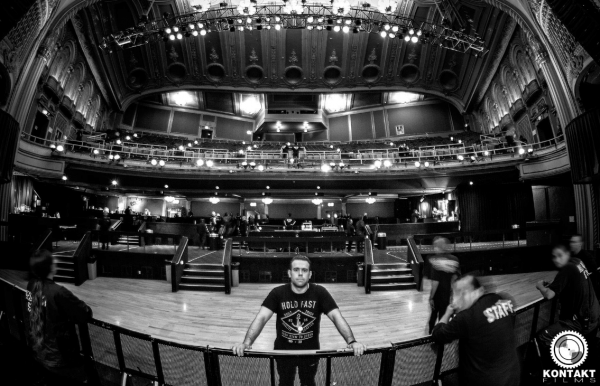
Adam’s advice to entrepreneurs interested in setting up their own film production company:
- You can’t do film productions by yourself. It would be best if you had good people around you whom you trust to help you achieve your goals. Find the right partners and develop those relationships. If you’re weak at something, find someone better to do it for you.
- Networking is critical. There are many talented people out there, but the ones that speak loudest and promote themselves the most usually get discovered first.
- Don’t work for free or undervalue your services. If everyone lowers their rates, it will devalue the industry as a whole to a point where it’s not sustainable.
- Find your niche, a unique skill set, or a certain type of clientele that fits your portfolio and style and do it well.
For more information on Kontakt Films:
Website: https://www.kontaktfilms.com/
Facebook: https://www.facebook.com/kontaktfilms
Instagram: https://www.instagram.com/kontaktfilms/
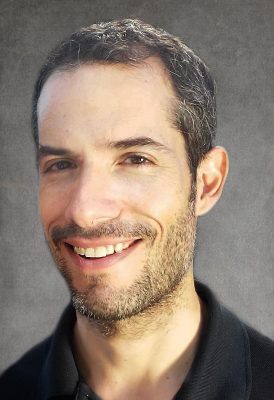
Author: Ian MacKenzie, Toronto, Canada. If you have stories to share kindly email: – mackenzie.ian@gmail.com





